Being prepared isn’t just about stockpiling supplies—it’s about building the skills to face any situation with confidence. Whether you’re looking to survive a natural disaster, social unrest, or long-term off-grid living, the right skills can mean the difference between thriving and just getting by. Many of these are practical, hands-on abilities that don’t require expensive gear or training, just time and commitment. Let’s explore the skills every prepper should have in their toolbox, covering everything from self-reliance to advanced survival techniques.
1. How to Start a Fire Without Matches

Knowing how to create fire without modern tools is a vital survival skill. Practice using methods like a ferrocerium rod, flint and steel, or even a bow drill. Pay attention to selecting dry tinder and kindling, as these are crucial to getting your fire going. Practice regularly in different weather conditions to ensure you can build a fire no matter the situation.
2. Purifying Water in the Wild

Access to clean water is non-negotiable in a crisis. Learn to boil water over a fire, use basic filtration with sand and charcoal, or create a solar still. Understanding how to remove bacteria and other contaminants from water could save your life. Always have backup purification methods ready in case your first option fails.
3. Growing and Storing Food

Gardening isn’t just a relaxing hobby; it’s a life-saving skill. Learn how to grow hardy crops like potatoes, beans, and squash, which offer high yields and good nutrition. Practice preserving your harvest by canning, drying, or fermenting. Invest time in understanding crop rotation and soil health to ensure long-term success.
4. Tying Survival Knots
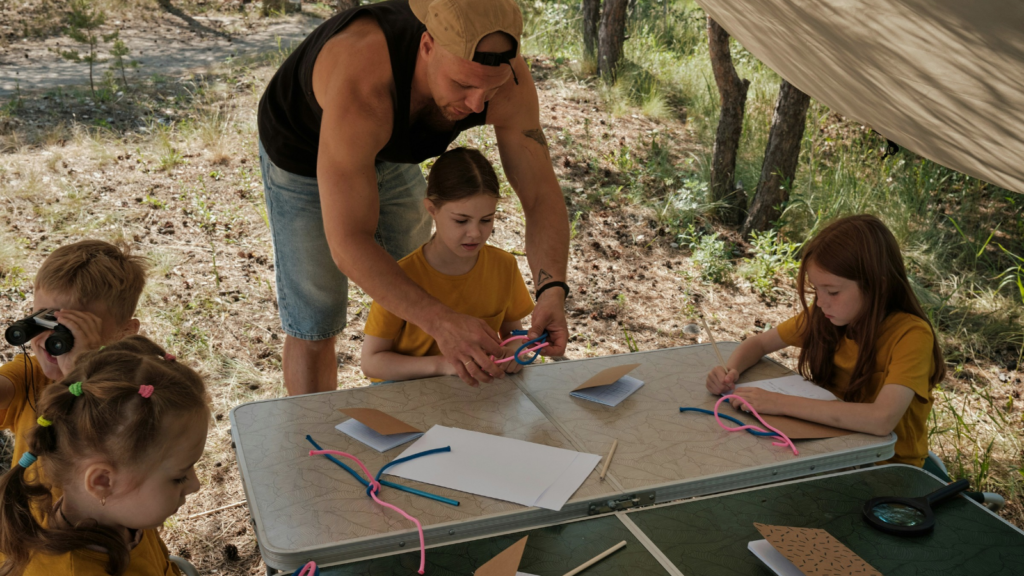
From securing gear to building shelters, the right knot can solve countless problems. Learn versatile knots like the bowline, square knot, and trucker’s hitch. Practice tying them quickly and securely, as speed can matter in an emergency. Test your knots under load to confirm their strength and reliability.
5. Navigation Without GPS

Technology is great—until it fails. Learn to read a topographic map and use a compass effectively. Combine this with natural navigation skills like reading the sun’s position or observing moss growth on trees. Practice plotting routes on maps to ensure you can orient yourself in unfamiliar areas.
6. Basic First Aid
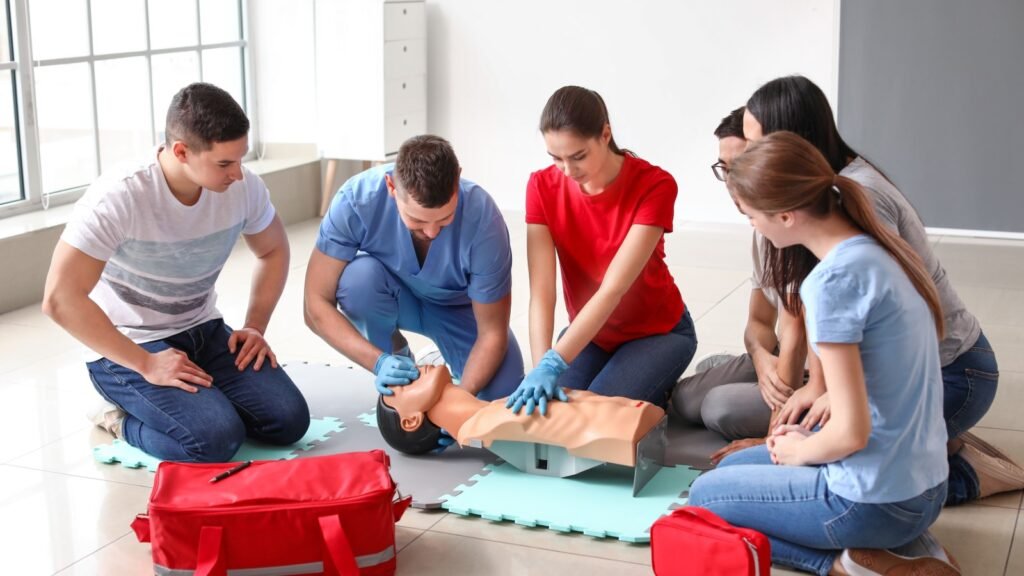
First aid skills are critical in any survival scenario. Learn how to treat wounds, burns, and sprains using basic supplies like gauze, antiseptic, and splints. CPR and the Heimlich maneuver can also save lives in emergencies. Keep a well-stocked first aid kit and periodically check its contents for expiration.
7. Making a Shelter
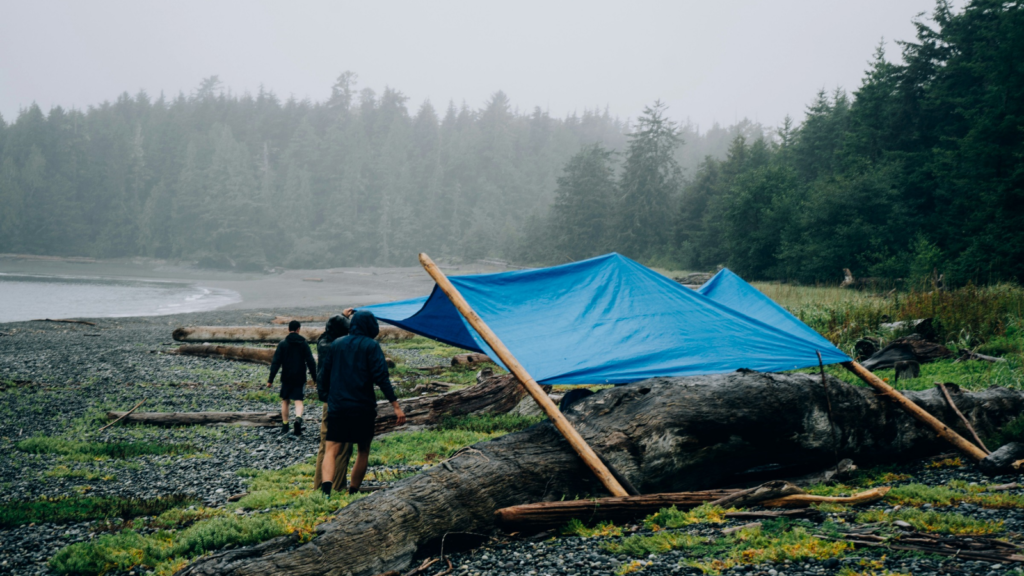
Whether you’re stranded in the woods or your home becomes uninhabitable, knowing how to build a shelter is key. Practice making lean-tos with branches and leaves or crafting a tarp shelter. Ensure your shelter provides protection from wind, rain, and cold temperatures. Learn insulation techniques to trap body heat and stay warm.
8. Cooking Without Modern Tools

Electric stoves won’t work in a grid-down situation, so mastering open-fire cooking is essential. Learn to control the heat of your fire and use simple tools like Dutch ovens, skewers, or foil. Practice cooking stews, breads, and other simple meals using only natural heat sources. Experiment with different fuel types, such as wood, charcoal, or dried dung.
9. Defensive Situational Awareness

Staying alert can help you avoid danger before it becomes a threat. Practice observing your surroundings, identifying exits, and spotting potential risks. The ability to read a situation quickly and act accordingly is a skill that can protect you and your family. Train yourself to recognize unusual behavior in people or animals as early warning signs.
10. Sewing and Mending Clothes

When resources are scarce, repairing your own clothing can be a lifesaver. Learn basic stitches like the running stitch and backstitch for repairs. Practice patching holes and reinforcing weak seams using scrap fabric. Create a small sewing kit to carry with you, complete with needles, thread, and spare buttons.
11. Bartering and Negotiation

In a world where money loses its value, bartering will become essential. Practice trading small items with friends or participating in local swaps. Learn to assess the value of goods and negotiate fairly. Develop a mental list of high-demand barter items, such as tools, medicine, and fuel.
12. Foraging for Wild Edibles
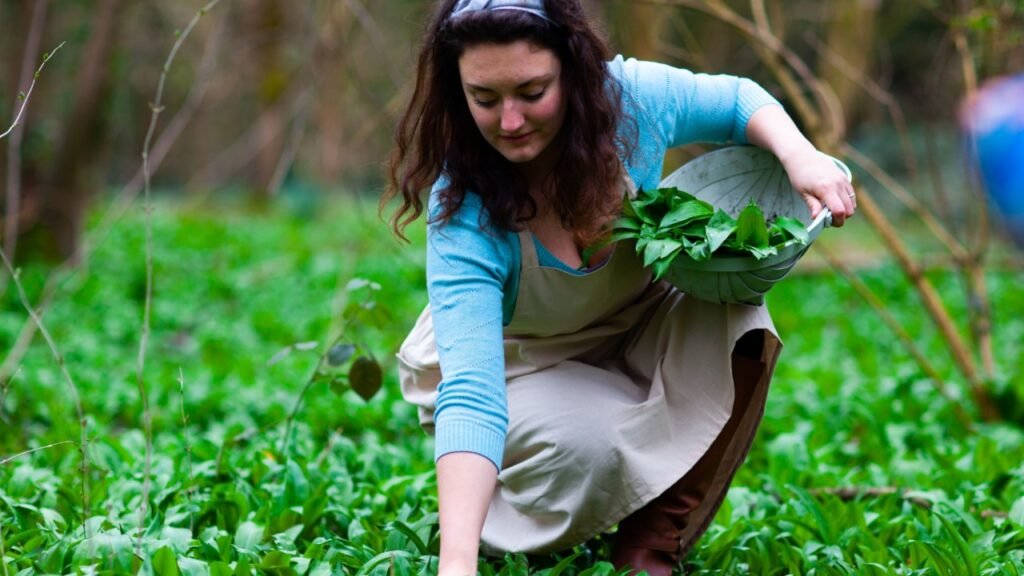
Nature offers a surprising amount of free food if you know where to look. Study local plants to learn which are edible and which are toxic. For example, dandelions, cattails, and wild onions are widely available and nutritious. Always test unfamiliar plants cautiously to avoid allergic reactions or poisoning.
13. Preserving Food for Long-Term Storage

Knowing how to store food properly ensures it lasts through tough times. Learn canning, dehydrating, and vacuum-sealing techniques. Practice storing basics like rice and beans, which can last for years when properly packaged. Rotate your stockpile to use older items first and keep everything fresh.
14. Defensive Firearms Training

Owning a firearm is one thing; knowing how to use it safely and effectively is another. Practice basic marksmanship, including stance, grip, and trigger control. Learn to maintain and clean your firearm to ensure it functions when you need it most. Familiarize yourself with local laws and regulations to stay compliant.
15. Maintaining and Repairing Tools
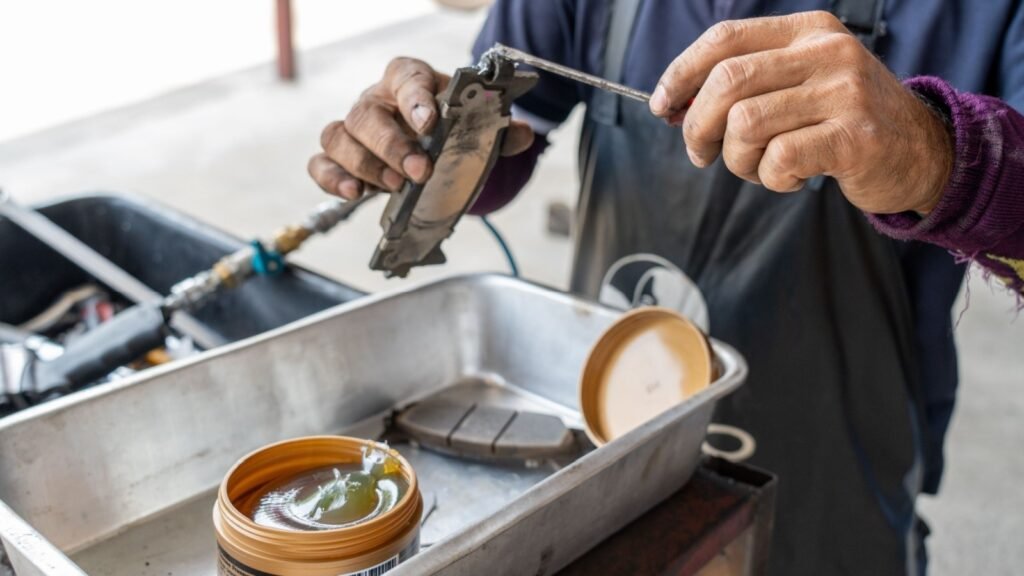
In a long-term survival situation, tools are vital. Learn to sharpen knives, fix broken handles, and maintain gear like axes and saws. Practice these skills regularly so you’re ready to improvise when necessary. Stock up on spare parts like screws, bolts, and replacement handles for critical tools.
16. Gardening Without Modern Tools

Learning to grow food using hand tools and natural fertilizers is a must. Practice using basic tools like hoes, trowels, and watering cans, and experiment with composting kitchen scraps to enrich the soil. This ensures your garden will thrive even without modern conveniences. Familiarize yourself with heirloom seeds, as they allow for seed saving and continued planting year after year.
17. Fishing Without a Rod

Fishing doesn’t always require fancy equipment. Learn how to make simple fishing rigs using lines, hooks, and natural bait. Practice techniques like handlining or crafting makeshift fishing poles from branches. Understanding fish behavior, like where they gather during certain times of the day, can greatly improve your success.
18. Making Natural Cordage

Cordage is essential for everything from tying gear to building shelters. Practice making rope from plant fibers like yucca, nettle, or even strips of fabric. Twist the fibers together tightly for strength, and test your creations to ensure they can handle weight and stress. Study which local plants are best for cordage to speed up the process in survival situations.
19. Digging a Survival Latrine

Sanitation is often overlooked but critical in any survival situation. Learn to dig a proper latrine at least 200 feet from water sources and downhill from your camp. Cover waste with soil and use ash or lime to reduce odor and bacteria. Practice creating basic hand-washing stations near your latrine to maintain hygiene.
20. Hunting Small Game

Small game like rabbits and squirrels can provide a reliable food source. Learn to set traps like snares or practice with small-caliber firearms. Understand local hunting laws and practice ethical, efficient methods that minimize suffering. Learn how to process the animals quickly to avoid spoilage in warm climates.
21. Collecting and Storing Rainwater

Rainwater collection can supplement your water supply during shortages. Practice setting up simple systems using tarps, gutters, or barrels. Learn to filter and purify rainwater to ensure it’s safe for drinking or cooking. Be mindful of local regulations regarding rainwater collection, as restrictions may apply in some areas.
22. Reading Weather Patterns

Weather can change quickly and affect your plans. Learn to recognize cloud formations, wind changes, and temperature shifts. This knowledge can help you prepare for storms or other extreme conditions without relying on technology. Practice monitoring barometric pressure using simple tools to predict weather changes more accurately.
23. Making DIY Repairs

Resourcefulness is key when replacements aren’t available. Practice repairing broken items like tools, shoes, or electronics using only what you have on hand. Duct tape, glue, and creativity go a long way in extending the life of your gear. Learn to disassemble items to salvage useful parts for future repairs.
24. Blacksmithing Basics
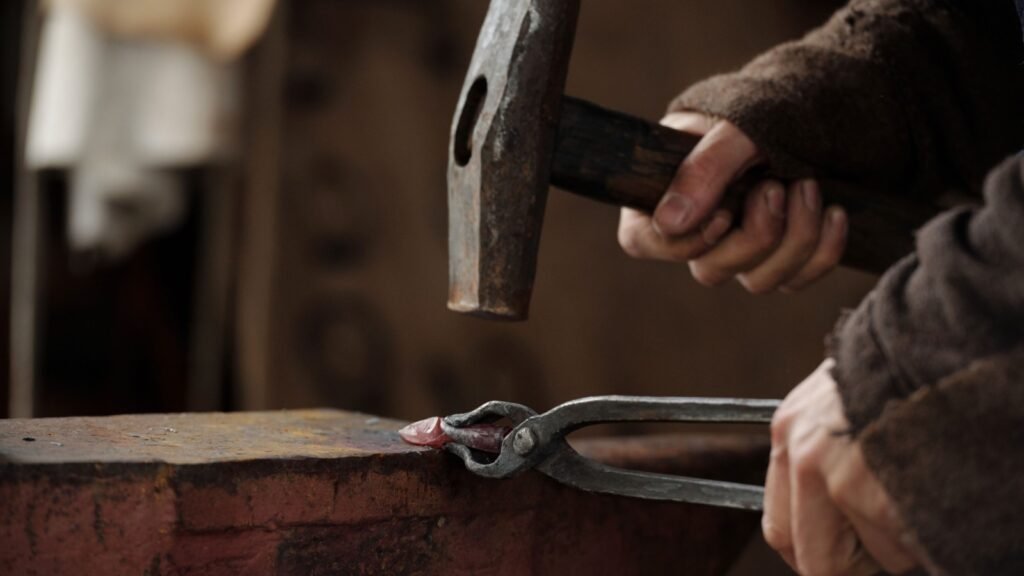
If you’ve ever thought about working with metal, blacksmithing is a rewarding skill to have. Learn to make simple tools, knives, or hooks using basic forge setups. This skill can make you self-sufficient when tools wear out. Study which metals are best for different applications to optimize your creations.
25. Packing a Bug-Out Bag
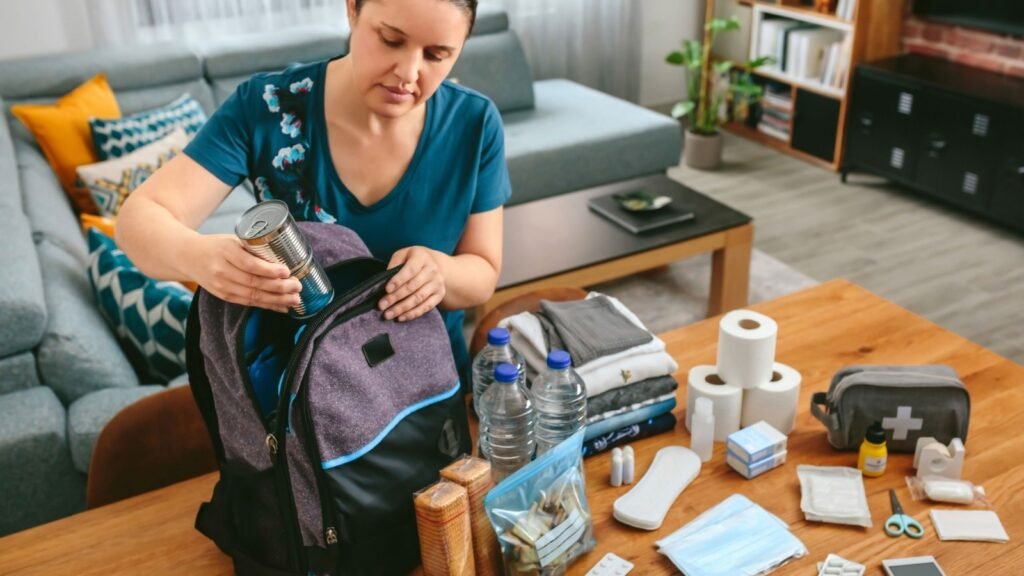
A well-prepared bug-out bag can save your life. Learn what essentials to pack, like water filters, high-calorie snacks, and medical supplies. Practice packing efficiently, keeping your bag lightweight but comprehensive. Regularly review and update your bag to account for seasonal changes and personal needs.
26. Identifying Animal Tracks
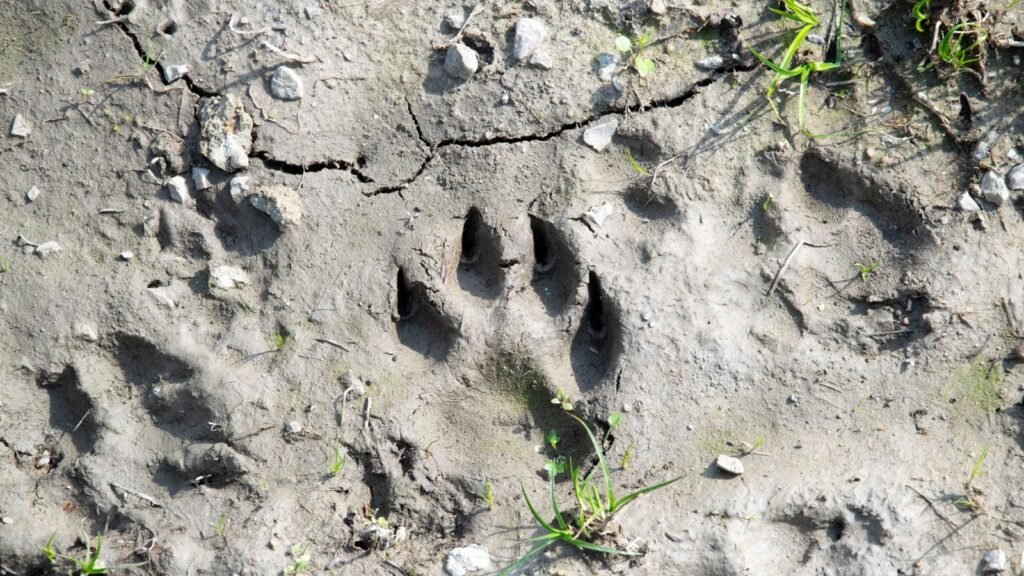
Knowing how to identify animal tracks can help you find food or avoid danger. Study the tracks of local wildlife and practice following them in soft ground or snow. This skill is invaluable for both hunting and staying safe in the wilderness. Learn to recognize patterns that indicate herd movement or predator activity.
27. Candle and Soap Making

Making your own candles and soap ensures you’re never without light or hygiene supplies. Learn to melt down old candles or use beeswax for new ones. Soap-making with lye and oils is simple once you understand the basics and is a valuable skill in long-term survival. Experiment with adding herbs for natural scents and additional skin benefits.
28. Creating Defensive Barriers

When security is a concern, knowing how to set up barriers is important. Practice using natural materials like logs, rocks, and thorny bushes to create makeshift fences. These barriers can deter wildlife or unwanted visitors. Learn to reinforce weak points in your barriers to make them more effective.
29. Improvising Weapons
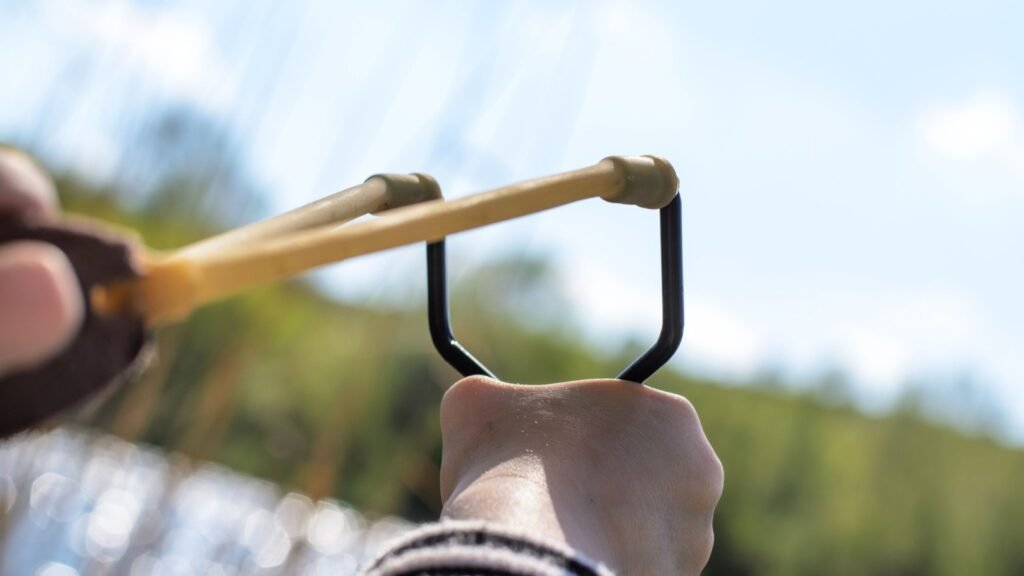
In a pinch, you may need to create defensive tools. Practice crafting weapons like spears, slings, or clubs from available materials. Always prioritize safety when experimenting with these methods. Understand the basics of balance and weight distribution to make your weapons effective and accurate.
30. Managing a Home Power Outage

Power outages happen—learn how to navigate them confidently. Practice setting up solar-powered lights, using battery-operated radios, and conserving resources. Having a plan for keeping food cold and rooms warm is essential. Stock up on backup batteries and learn how to create makeshift chargers for small devices.
31. Cooking Wild Game

If you’ve hunted or foraged successfully, cooking your catch is the next step. Learn how to skin, gut, and prepare small game or fish over an open fire. Practice cooking with minimal seasoning or tools to develop real survival cooking skills. Experiment with different cooking methods like smoking or roasting to preserve the meat.
32. Assembling Makeshift Tools

Necessity breeds invention, and knowing how to improvise tools can save the day. Practice repurposing items like cans, wire, or broken utensils into functional tools. This creative skill ensures you’ll never be left empty-handed. Keep a small collection of multi-purpose items like pliers or tin snips in your gear.
33. Making Homemade Medicines

When pharmacies aren’t an option, natural remedies can step in. Learn how to make poultices, tinctures, and teas from herbs like yarrow, chamomile, and ginger. Research and practice under safe conditions before relying on these methods. Always consult multiple sources to confirm the safety of any remedy.
34. Building Trust in a Community
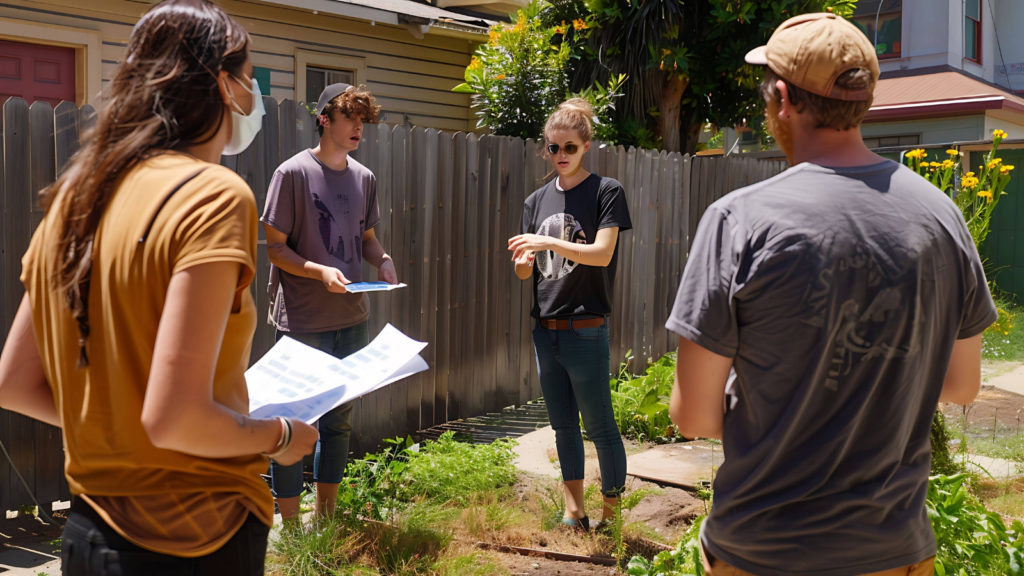
In a crisis, collaboration often beats isolation. Learn how to build connections with neighbors, exchange skills, and form mutual aid networks. This sense of community can make surviving tough times easier and more manageable. Offer to teach or share your skills as a way to build goodwill and mutual trust.
35. Creating Smoke Signals for Rescue
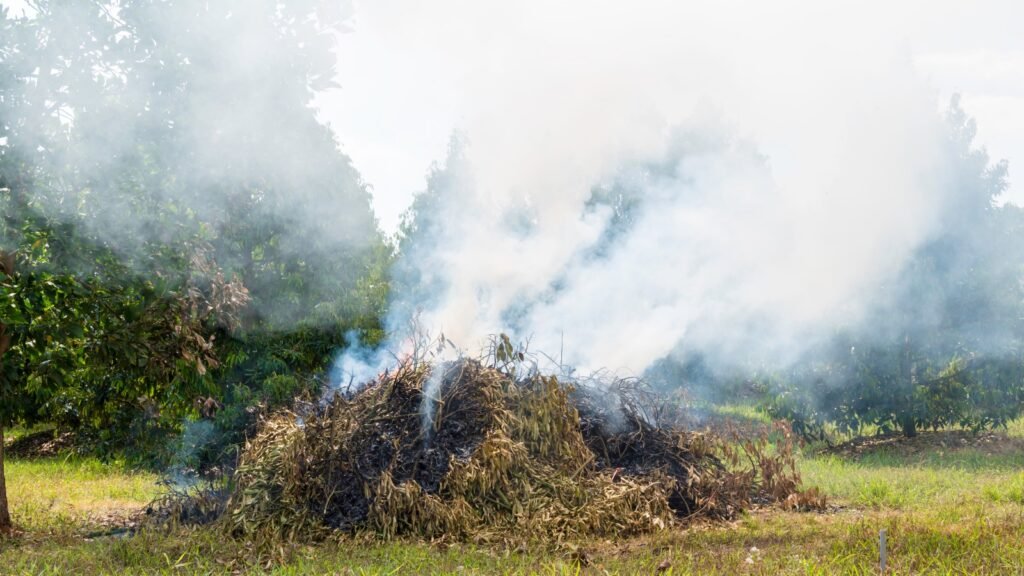
If you’re stranded, knowing how to make effective smoke signals can draw attention. Use green branches or damp materials to create thick smoke that’s visible from a distance. Practice making and controlling these signals safely. Learn to arrange your signal in clear, noticeable patterns like three distinct columns for distress.
36. Learning Basic Mechanics

Vehicles and generators often break at the worst times. Learn to change tires, fix small engine problems, and perform basic maintenance. Understanding how machines work keeps you mobile and prepared. Study common engine issues for your specific equipment to diagnose problems quickly.
37. Tracking Time Without a Watch
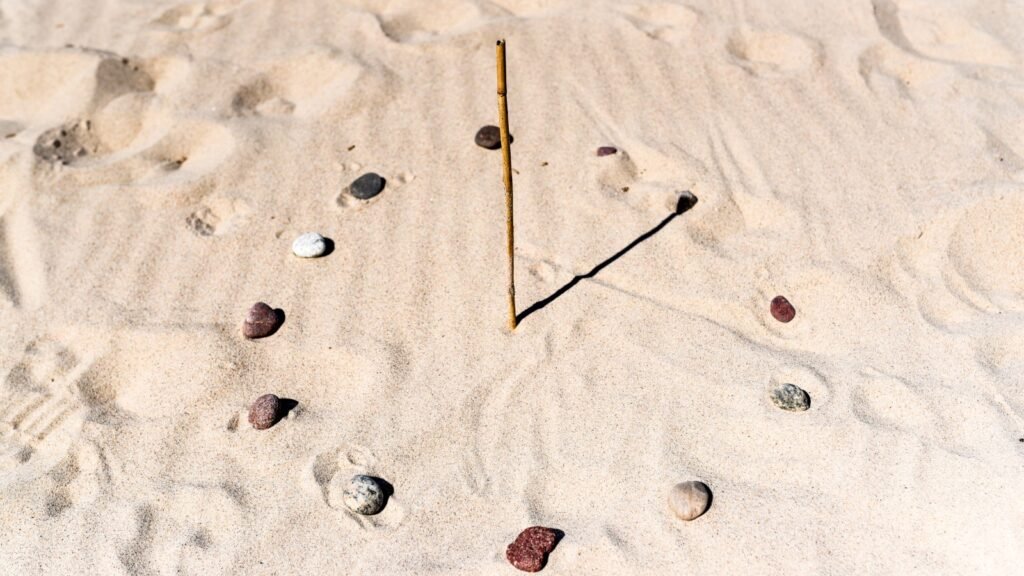
Without technology, simple techniques like observing the sun or using a stick shadow can help track time. Practice these methods to get a general sense of time for organizing your day in survival scenarios. Learn to estimate time intervals by counting natural rhythms, like heartbeats or dripping water.
38. Creating Hidden Storage

If security is an issue, hidden caches can keep your supplies safe. Practice creating secret compartments in walls, floors, or outdoor areas. These can protect your valuables from theft or damage. Use waterproof containers to keep stored items safe from moisture.
39. Baking Without an Oven

Learning to bake over an open flame or in a Dutch oven ensures access to bread and other staples. Practice making simple recipes like bannock or flatbreads. These methods are versatile and don’t rely on electricity. Experiment with different flours, including wild foraged alternatives like acorn or chestnut flour.
40. Managing Stress and Anxiety

Crisis situations are as much about mental resilience as physical preparation. Learn techniques like deep breathing, meditation, or visualization to stay calm. These strategies help you make clear decisions under pressure. Build a routine that includes regular breaks to avoid burnout in long-term survival scenarios.
41. Building and Repairing Fences

Fences are essential for security and livestock management on a homestead. Learn to build basic wood or wire fences, including sturdy gates. Practice repairing broken posts and wires using common tools. Understanding the basics of fence construction can protect your property from intruders or predators.
42. Making a DIY Solar Oven

Solar ovens allow you to cook food using only sunlight. Learn to construct one with basic materials like cardboard, aluminum foil, and glass. Practice using it to bake, boil, or reheat food. Solar ovens are energy-efficient and work well in sunny climates, making them an excellent off-grid tool.
43. Sharpening Tools and Knives

Sharp tools are safer and more effective than dull ones. Learn how to sharpen knives, axes, and other blades using whetstones or sharpening rods. Practice maintaining the correct angle to achieve a sharp edge without damaging the tool. Regular maintenance ensures your tools are always ready for use.
44. Brewing Safe Herbal Teas

Herbal teas can offer hydration and medicinal benefits in survival situations. Learn to identify and prepare common herbs like mint, chamomile, and nettle. Practice brewing teas to address common issues like colds, stomach aches, or fatigue. Always ensure that the herbs you use are safe and properly identified.
45. Crafting and Using Snares

Snares are a reliable way to catch small game in survival situations. Learn how to craft simple wire or string snares and where to place them for maximum success. Practice setting traps in areas with visible animal trails. Check them frequently to ensure humane and effective trapping.
46. Making Emergency Candles

Candles provide light and warmth during power outages. Learn to make emergency candles from household materials like crayons, butter, or bacon grease. Practice creating wicks from cotton or other flammable fibers. These improvised candles can provide hours of light in a pinch.
47. Creating an Emergency Escape Plan

Emergencies like fires, floods, or civil unrest require quick action. Create a detailed escape plan for your home, including multiple exits and a safe meeting point. Practice evacuation drills with your family to ensure everyone knows what to do. Include contingencies for pets and essential supplies.
48. Maintaining Livestock Without Electricity
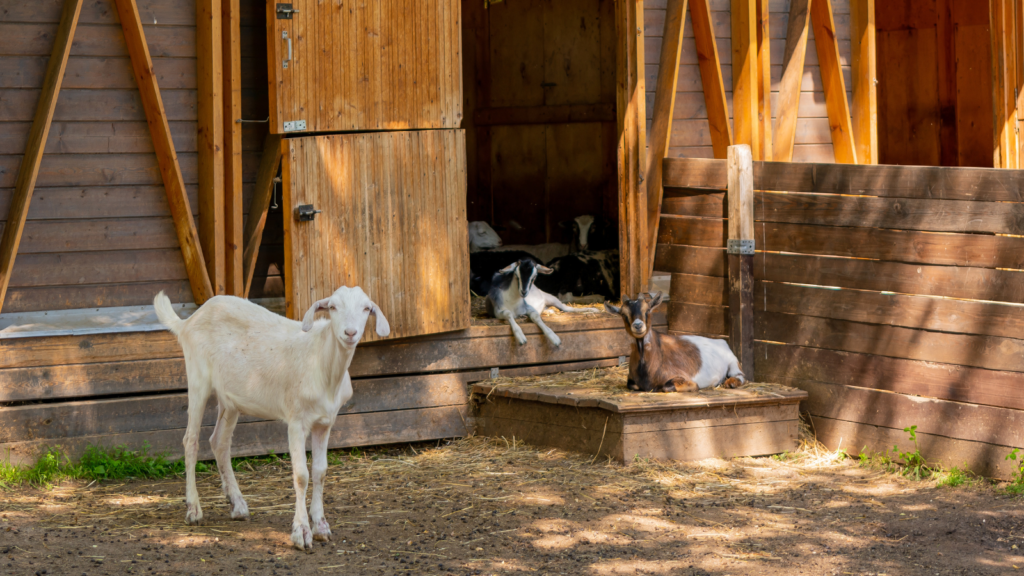
Livestock care can become challenging during a power outage. Learn to milk animals by hand, store milk safely without refrigeration, and manage feed manually. Practice keeping livestock cool in summer or warm in winter using natural methods. Self-reliant livestock care ensures your animals remain healthy in tough times.
49. Building a Rocket Stove

Rocket stoves are efficient and easy-to-build cooking devices that use minimal fuel. Learn to construct one using bricks, metal cans, or clay. Practice cooking simple meals on your rocket stove to understand how it functions. This low-tech option is perfect for off-grid cooking or emergencies.
50. Crafting a Survival Bow
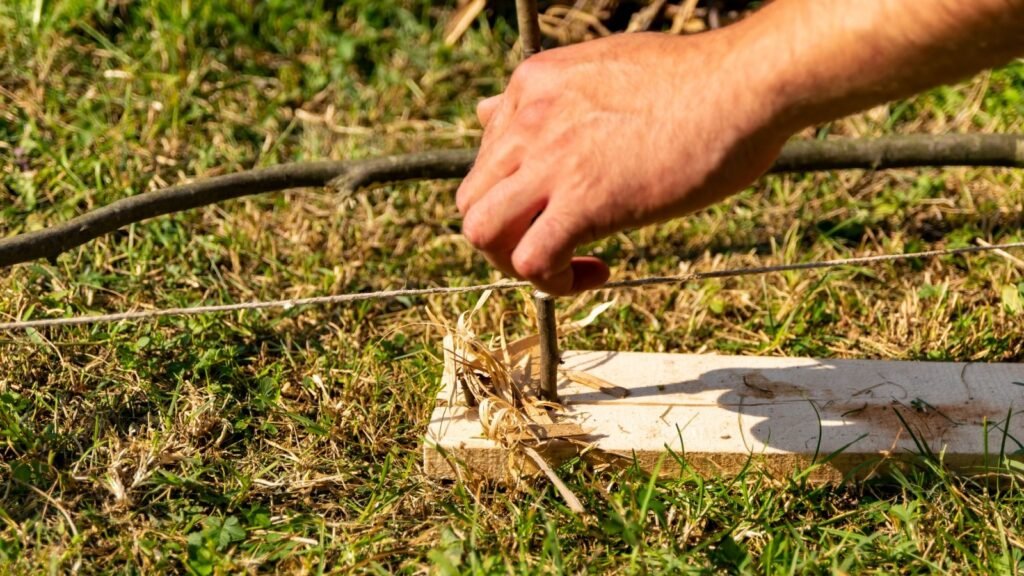
A bow can be a versatile tool for hunting or defense. Learn to craft a basic bow from wood and paracord, and practice making arrows from sticks or other materials. Test your creation to ensure it’s functional and accurate. Mastering this ancient skill can provide food and protection when modern tools fail.

